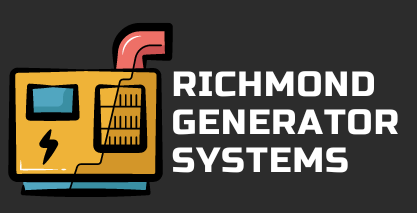
Whole House Generators in Acca VA
A whole house generator is a backup power system designed to supply electricity to your entire home during a power outage. These systems ensure that essential appliances and systems, such as heating, cooling, and refrigeration, continue to function when the main power supply is interrupted. There are several types of whole house generators:
- Standby Generators: These are permanently installed outside your home and automatically start up when a power outage occurs. They are connected to your home's electrical system and provide seamless power transfer.
- Portable Generators: These are more versatile and can be moved around. They require manual setup and connection to your home's electrical system or directly to appliances.
- Inverter Generators: Known for their quiet operation and fuel efficiency, inverter generators provide stable power output, making them ideal for sensitive electronics.
What We Offer
We provide comprehensive services for
whole house generators in Acca, VA, including installation, maintenance, and repair. Our team of skilled technicians ensures that you get a reliable and efficient generator tailored to your home's needs. We work with top brands and offer various models to suit different power requirements and budgets.
- Residential Generators
- Commercial Generators
- Portable Generators
- Electric Generators
- Propane Generators
- Solar Generators
- Generator Repairs
- Generator Maintenance
- Generator Parts

We will get back to you as soon as possible.
Please try again later.
How Do They Work?
Whole house generators are connected to your home’s electrical panel. When the generator detects a power outage, it automatically turns on and begins supplying electricity. The system includes an automatic transfer switch that disconnects your home from the grid and connects it to the generator. This switch ensures that the generator provides power without any interruption or manual intervention.
Fuel Sources
Whole house generators can operate on various fuel sources, including:
- Natural Gas: This is a popular choice due to its convenience and cost-effectiveness. Natural gas generators are connected to your home’s gas supply, eliminating the need for fuel storage.
- Propane: Propane generators require a separate propane tank, which must be refilled periodically. This option is useful if natural gas is not available.
- Diesel: Diesel generators are known for their durability and are often used in commercial settings or where extended operation is required. They require a dedicated fuel tank and regular refueling.
- Gasoline: While less common for whole house generators due to the need for frequent refueling, gasoline-powered generators are available for portable applications.
Installation Steps, Testing, and Commissioning
The installation of a whole house generator involves several steps:
- Site Assessment: We evaluate your property to determine the optimal location for the generator, considering factors like proximity to the electrical panel and ventilation requirements.
- Installation: The generator is installed on a concrete pad or other suitable surface. Electrical connections are made to the home’s electrical panel, and the fuel supply line is connected.
- Testing: Once installed, the generator undergoes a series of tests to ensure it operates correctly and meets power requirements. This includes running the generator under load conditions to verify its performance.
- Commissioning: After successful testing, the generator is officially commissioned. Our team provides a demonstration of its operation and explains how to use and maintain the system.
Regular Maintenance Tasks
To ensure your generator remains in optimal condition, regular maintenance is essential. Key maintenance tasks include:
- Checking Fuel Levels: Ensure that the fuel supply is adequate and that there are no leaks.
- Inspecting and Replacing Filters: Regularly check and replace air, oil, and fuel filters to maintain efficiency and prevent damage.
- Testing the Battery: The generator’s battery should be tested periodically and replaced if necessary.
- Running the Generator: Regularly run the generator under load conditions to keep it in working order and prevent issues.
- Cleaning: Keep the generator and its surroundings clean to prevent debris buildup and ensure proper ventilation.
Diagnosing and Addressing Common Problems
Generators can experience various issues. Common problems and their solutions include:
- Failure to Start: Check fuel levels, battery condition, and electrical connections. Ensure that the generator is not experiencing any mechanical issues.
- Overloading: If the generator is overloaded, it may shut down or operate poorly. Ensure that the power load is within the generator’s capacity.
- Strange Noises: Unusual noises could indicate mechanical problems or loose parts. Inspect the generator for any visible issues and consult a technician if needed.
- Low Power Output: If the generator is not producing sufficient power, check for issues with the fuel system, electrical connections, or load distribution.
Considerations When Choosing a Whole House Generator
When selecting a whole house generator, consider the following factors:
- Power Requirements: Calculate the total wattage needed to power your home’s essential systems and appliances. Choose a generator with adequate capacity.
- Fuel Type: Select a fuel type based on availability, cost, and convenience.
- Size and Placement: Ensure that the generator fits the available space and meets local zoning and installation requirements.
- Noise Level: Consider the noise level of the generator, especially if it will be placed close to living areas.
- Brand and Warranty: Choose a reputable brand with a good warranty to ensure reliability and support.
Importance of Having a Reliable Backup Power Source
Having a reliable backup power source is crucial for maintaining comfort and safety during power outages. A whole house generator ensures that your home remains functional, providing continuous power for essential systems such as heating, cooling, and refrigeration. It also prevents the inconvenience and potential damage associated with power loss, such as spoiled food, disrupted daily routines, and potential damage to electrical systems.
Common FAQs
Q: How long can a whole house generator run continuously?
A: The runtime of a generator depends on the fuel type and capacity. Natural gas and propane generators can run indefinitely as long as there is a fuel supply. Diesel generators can also run for extended periods, but regular refueling is necessary.
Q: How often should I perform maintenance on my generator?
A: Regular maintenance is typically performed every six months to a year, depending on the manufacturer’s recommendations and usage. Consult your generator’s manual for specific maintenance intervals.
Q: Can I install a whole house generator myself?
A: While some homeowners may attempt DIY installation, it is recommended to hire a professional to ensure proper installation, compliance with local codes, and safety.
Q: What is the average cost of installing a whole house generator?
A: The cost varies based on the generator’s size, fuel type, and installation complexity. On average, installation can range from $5,000 to $15,000.
For expert advice, installation, and maintenance of whole house generators in Acca, VA, contact us today. Our team is dedicated to ensuring that your home is equipped with a reliable backup power source. Reach out to us to schedule a consultation or request more information about our services. Let us help you keep your home powered and secure during any power outage.
Let's Connect!
Looking for reliable power solutions? Look no further than us! Our expert team is here to help you understand how whole house generators work and why they're essential. Don't get caught in the dark! Check out our buyer's guide and discover the reasons for the loss of power. Contact us today for a consultation!